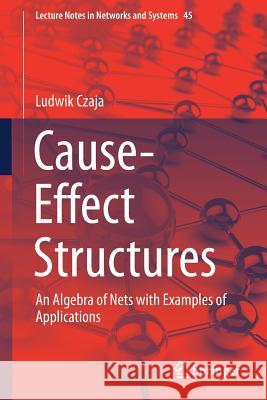Cause-Effect Structures: An Algebra of Nets with Examples of Applications » książka
topmenu
Cause-Effect Structures: An Algebra of Nets with Examples of Applications
ISBN-13: 9783030204600 / Angielski / Miękka / 2019 / 142 str.
Kategorie:
Kategorie BISAC:
Wydawca:
Springer
Seria wydawnicza:
Język:
Angielski
ISBN-13:
9783030204600
Rok wydania:
2019
Wydanie:
2019
Numer serii:
000797696
Ilość stron:
142
Waga:
0.23 kg
Wymiary:
23.39 x 15.6 x 0.89
Oprawa:
Miękka
Wolumenów:
01
Dodatkowe informacje:
Komentarz
Wydanie ilustrowane
Wydanie ilustrowane











